.
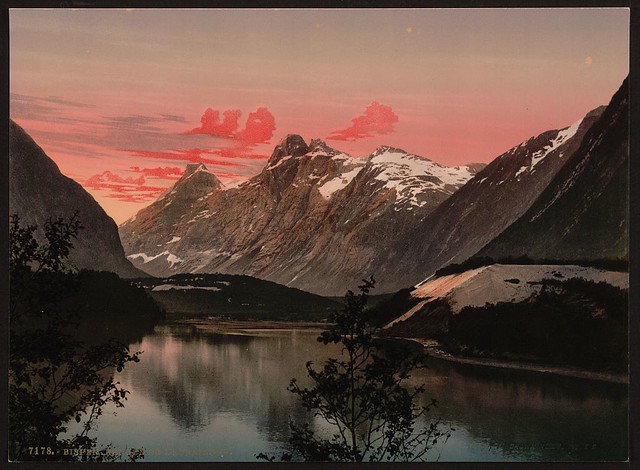
Kongen og Dronningen, Bispen, Norway, c. 1890: photochrome print, Detroit Publishing Co., 1905 (Library of Congress)
What do I know about God and the purpose of life?
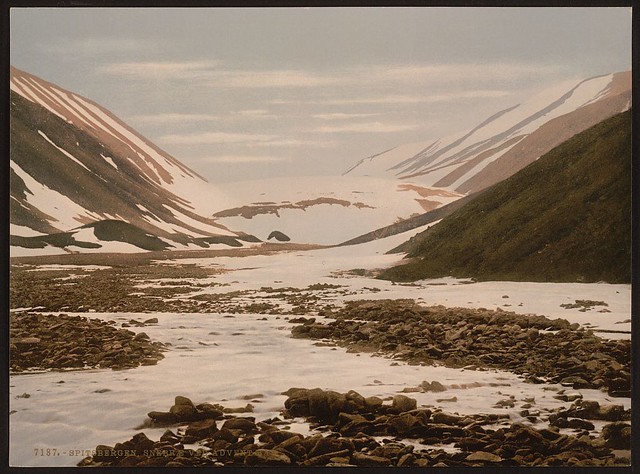
Snebrae at Advent Bay, Spitzbergen, Norway, c. 1890: photochrome print, Detroit Publishing Co., 1905 (Library of Congress)
I know that this world exists.
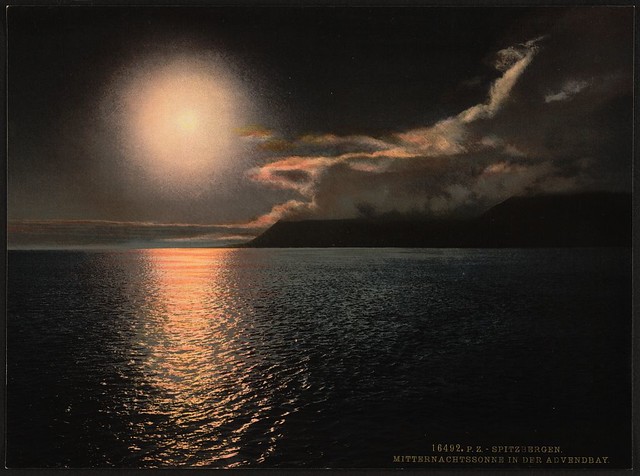
Midnight sun at Advent Bay, Spitzbergen, Norway, c. 1890: photochrome print, Detroit Publishing Co., 1905 (Library of Congress)
That I am placed in it like my eye in its visual field.
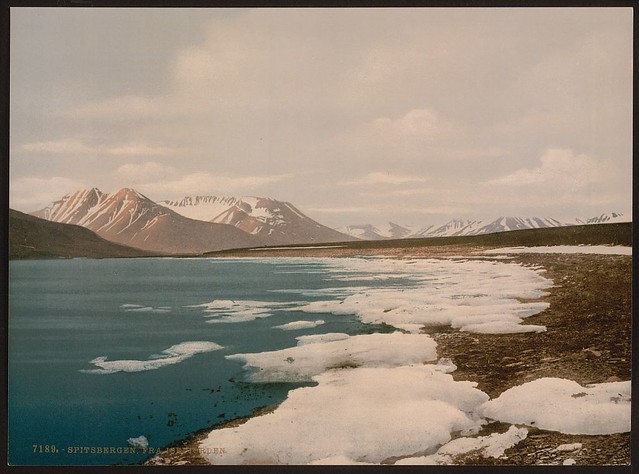
The Isefiorden, Spitzbergen, Norway, c. 1890: photochrome print, Detroit Publishing Co., 1905 (Library of Congress)
That something about it is problematic, which we call its meaning.
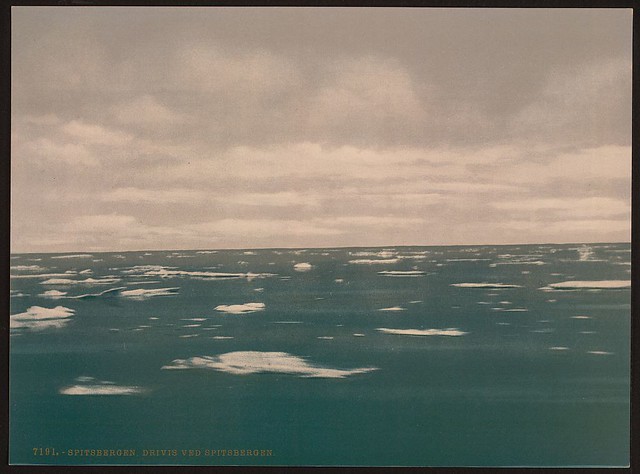
Drifting ice, Spitzbergen, Norway, c. 1890: photochrome print, Detroit Publishing Co., 1905 (Library of Congress)
This meaning does not lie in it but outside of it.
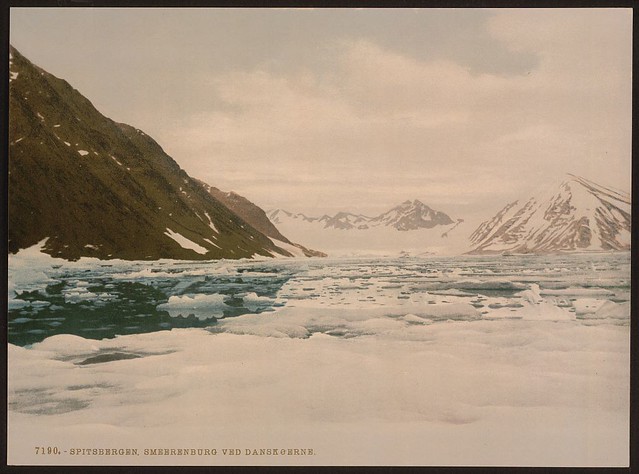
Smeerenburg at Danskerne, Spitzbergen, Norway, c. 1890: photochrome print, Detroit Publishing Co., 1905 (Library of Congress)
That life is the world.
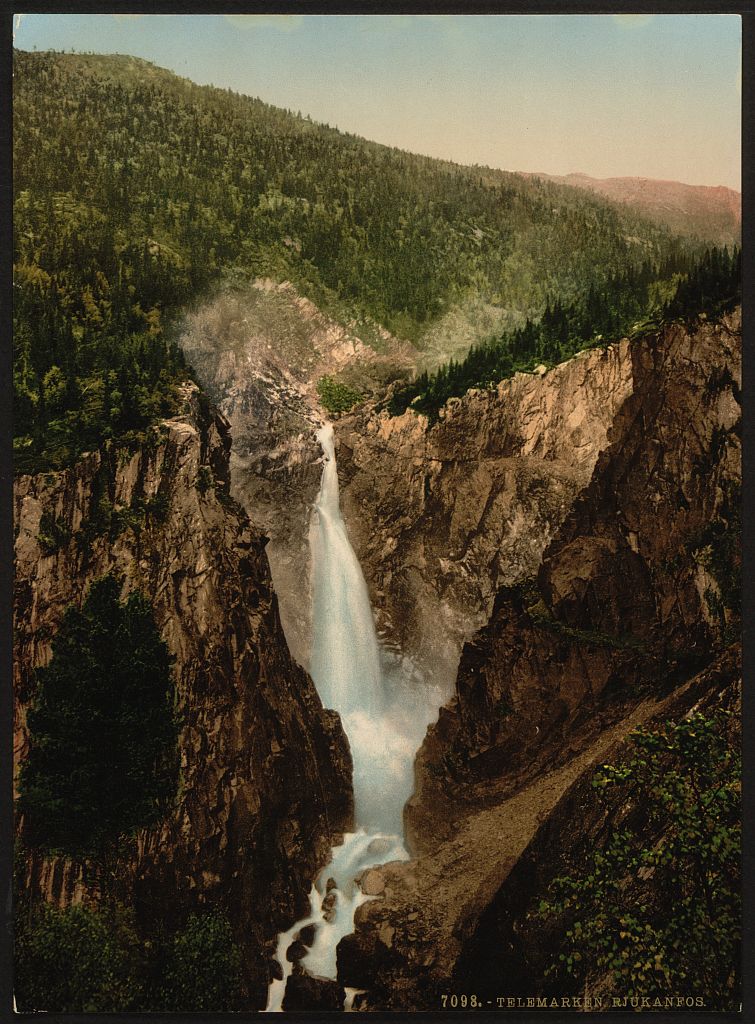
Rjukanfos, Telemarken, Norway, c. 1890: photochrome print, Detroit Publishing Co., 1905 (Library of Congress)
That my will penetrates the world.

Boiumsbrae, Sognefjord, Norway, c. 1890: photochrome print, Detroit Publishing Co., 1905 (Library of Congress)
That my will is good or evil.
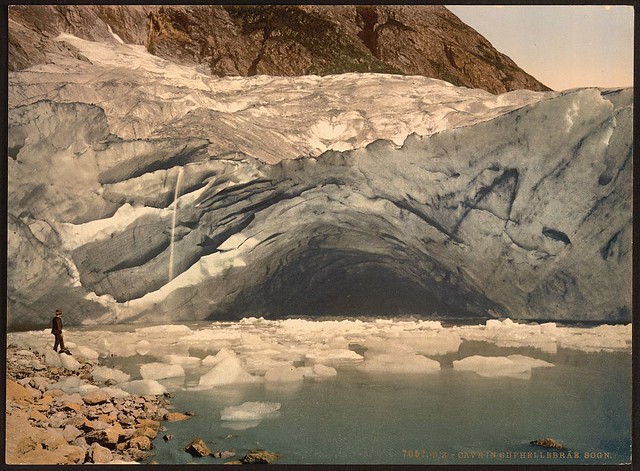
Grotto in Suphellebrae, Sognefjord, Norway, c. 1890: photochrome print, Detroit Publishing Co., 1905 (Library of Congress)
Therefore that good and evil are somehow connected with the meaning of the world.
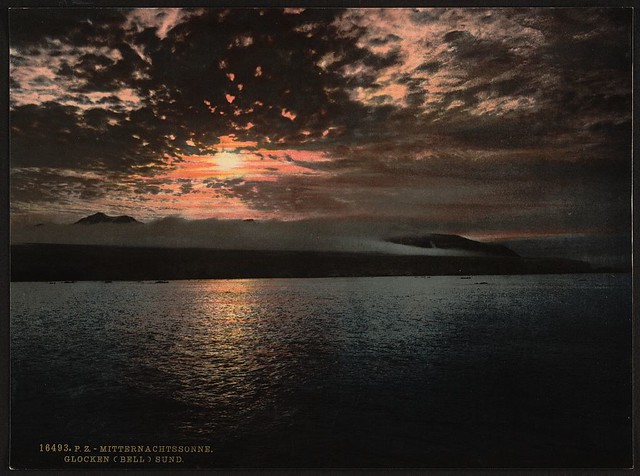
Midnight sun, Bell Sound, Norway, c. 1890: photochrome print, Detroit Publishing Co., 1905 (Library of Congress)
The meaning of life, i.e. the meaning of the world, we can call God.

Buierbrae Glacier, Odde, Hardanger Fjord, Norway, c. 1890: photochrome print, Detroit Publishing Co., 1905 (Library of Congress)
To pray is to think about the meaning of life.
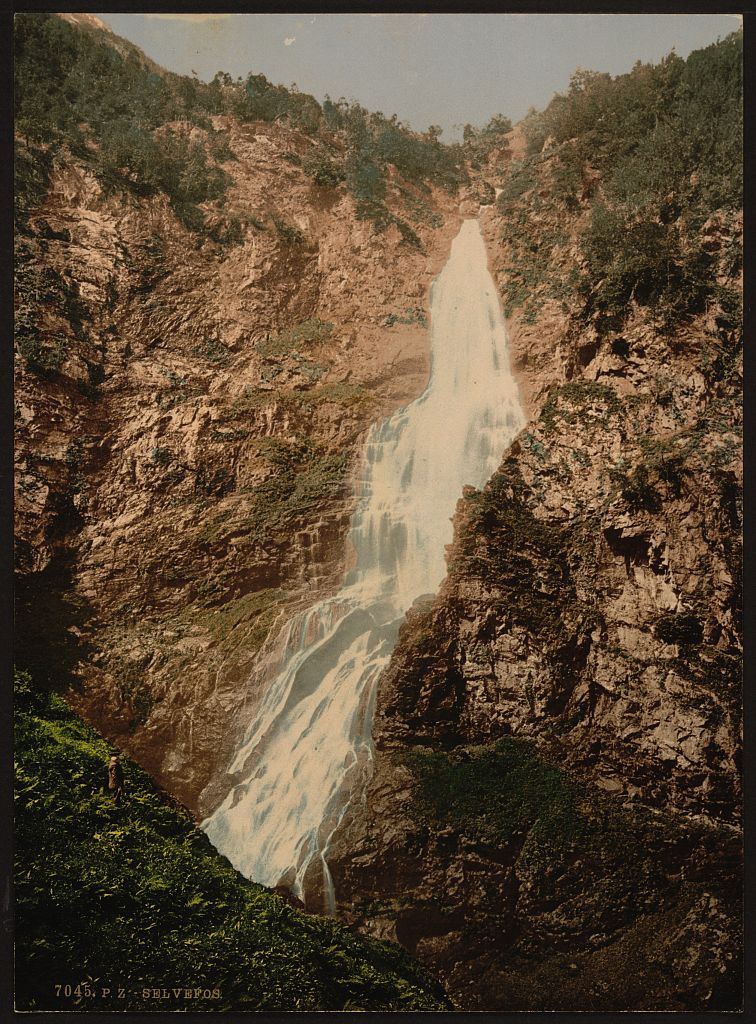
Silvefos, Hardanger Fjord, Norway, c. 1890: photochrome print, Detroit Publishing Co., 1905 (Library of Congress)
I cannot bend the happenings of the world to my will: I am completely powerless.
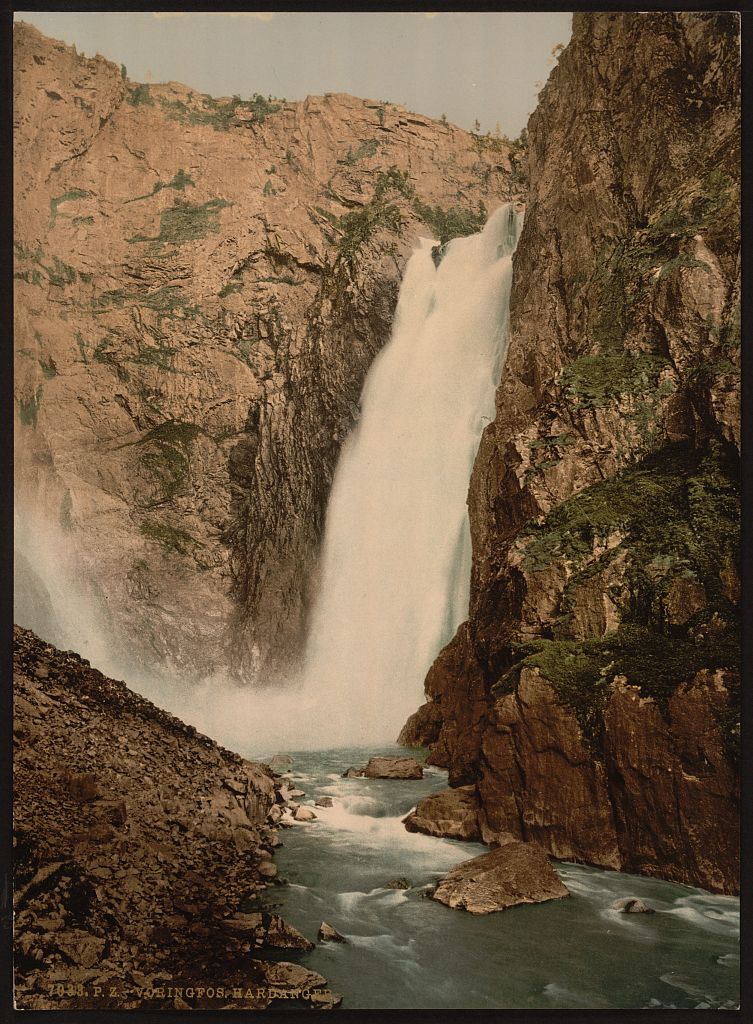
Vorinfos, Hardanger Fjord, Norway, c. 1890: photochrome print, Detroit Publishing Co., 1905 (Library of Congress)
I can only make myself independent of the world -- and so in a certain sense master it -- by renouncing any influence on happenings. (11 June 1916)
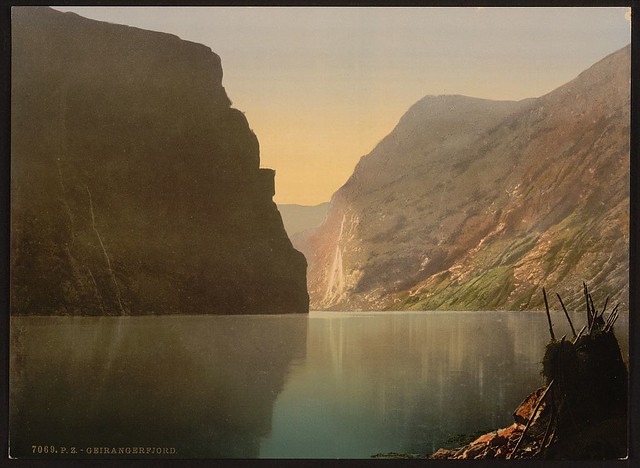
Praekestolen, Geiranger Fjord, Norway, c. 1890: photochrome print, Detroit Publishing Co., 1905 (Library of Congress)
The world is independent of my will. (5 July 1916)
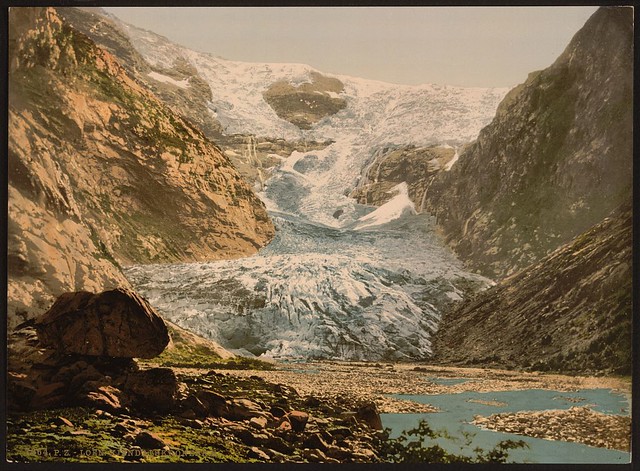
Loen, Kjendalskronebrae, Nordfjord, Norway, c. 1890: photochrome print, Detroit Publishing Co., 1905 (Library of Congress)
The World and Life are one. (24 July 1916)
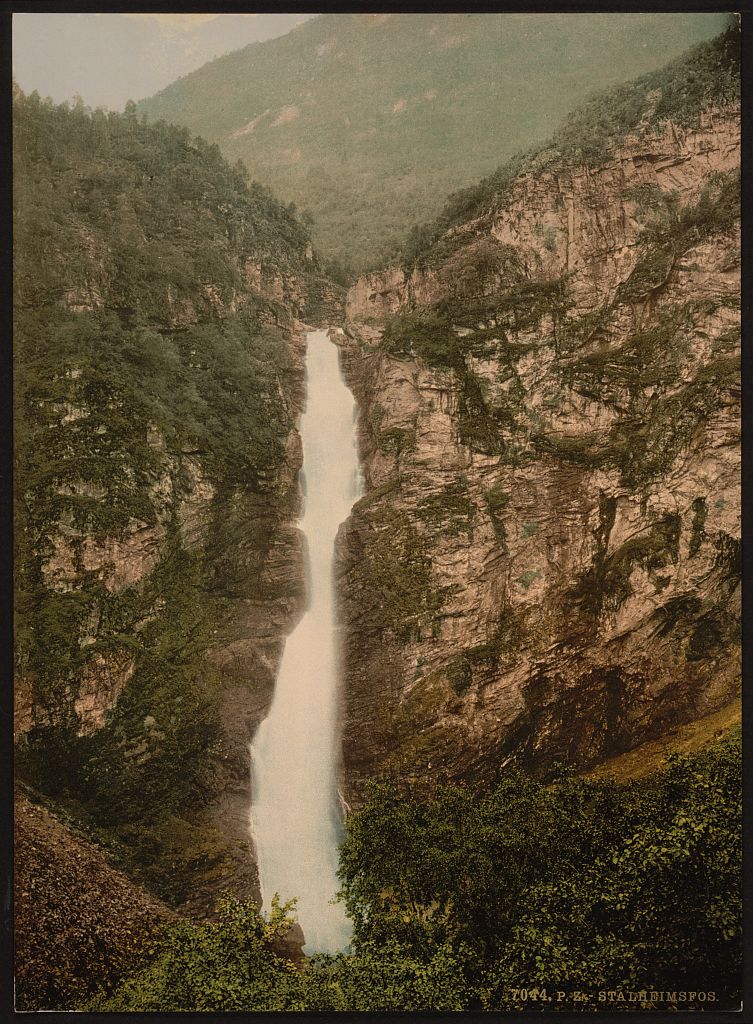
Stalheimsfos, Hardanger Fjord, Norway, c. 1890: photochrome print, Detroit Publishing Co., 1905 (Library of Congress)

Wittgenstein’s house near Skjolden, Sogneflord, Norway, 1914

Wittgenstein’s house near Skjolden, Sogneflord, Norway, 1914
Wittgenstein’s house near Skjolden, Sogneflord, Norway: photo reconstruction by AJP Crown, via A Bad Guide, 26 May 2010
This post dedicated to AJP Crown
Ludwig Wittgenstein: Notebooks 1914-1916 (excerpts), translated by G.E.M. Anscombe, 1961
Ludwig Wittgenstein: Notebooks 1914-1916 (excerpts), translated by G.E.M. Anscombe, 1961

Well, thank you. A very topical post, Tom. Well said, Mr Wittgenstein. It's some comfort.
ReplyDeleteI don't think I got the perspective quite right in that house, I'll have to work on it again...
Artur.
It seems things always went wrong with Wittgenstein's houses. On the house for his sister he overspent disastrously on ridiculous small details, at one point even furtively buying up lottery tickets in order to help finance the extravagance. But neither his sister, who had commissioned it, nor the rest of the family seems to have thought much of the place, and one senses there was talk behind LW's back. Even he had to admit in the end that the place was not so much as a space in which to live as a space in which to vegetate (and I believe he compared his architectural skills at that point with the musical talents of Mendelson).
ReplyDeleteNonetheless he seems to have continued to fancy himself an architect, and remained registered in the Viennese architects guild (if that's what it was called) all through the 1930s.
In short, Artur, I think you may have a better hand at photoshop than LW had at architecture.
Tom,
ReplyDeleteBeautiful, "that I am placed in it like my eye in its visual field" (now I see where Lucie disappeared to). . . .
12.11
grey whiteness of fog against invisible
ridge, shapes of green leaves on branch
in foreground, sound of wave in channel
as in thing it follows from,
the condition of that
point, relative position of
bodies at rest, which
grey-white fog against invisible point,
shadowed green pine on tip of sandspit
Steve,
ReplyDeleteHello from dripping morning here.
Terrific this
shadowed green pine on tip of sandspit
(half Japanese, one quarter Norwegian, two thirds Laguna/Bolinasian?)
(This by the way is the house that Wittgenstein built.)
solitude dude
ReplyDeletehill house
cold fjord
stating the obvious
without affectation
too much for so many
to bear,too bare
Elmo,
ReplyDeleteThat gets right to the heart of this.
By the way, for those who are interested, some other Wittgenstein bits:
Problems of Life: Wittgenstein
Wittgenstein: Is Understanding Possible?
Wittgenstein: The Visual Room
Wittgenstein: On the Myth of the Time Goddess
In the World (Wittgenstein)
Feelers: Wittgenstein
I love it. Like all your Wittgensttein posts. I'm a bit speechless lately, but I want to express my liking, at least. Thank you.
ReplyDeleteTom,
ReplyDeleteThanks for note on "dripping morning", fog pouring over the ridge from 'east' Marin, cloudless clear blue sky out here this morning. . . .
Steve,
ReplyDeleteHold on to that bit of blue sky while it lasts...
Julia,
Many thanks for the kind word.
(I too would be speechless had I, like you, just graded 600 examinations and student papers!)
Thank you, Tom, but this IS easy. Dealing with other's work is the easy part, dealing with my own work- not that simple. (Dealing with ME, impossible!)
ReplyDeleteBest regards